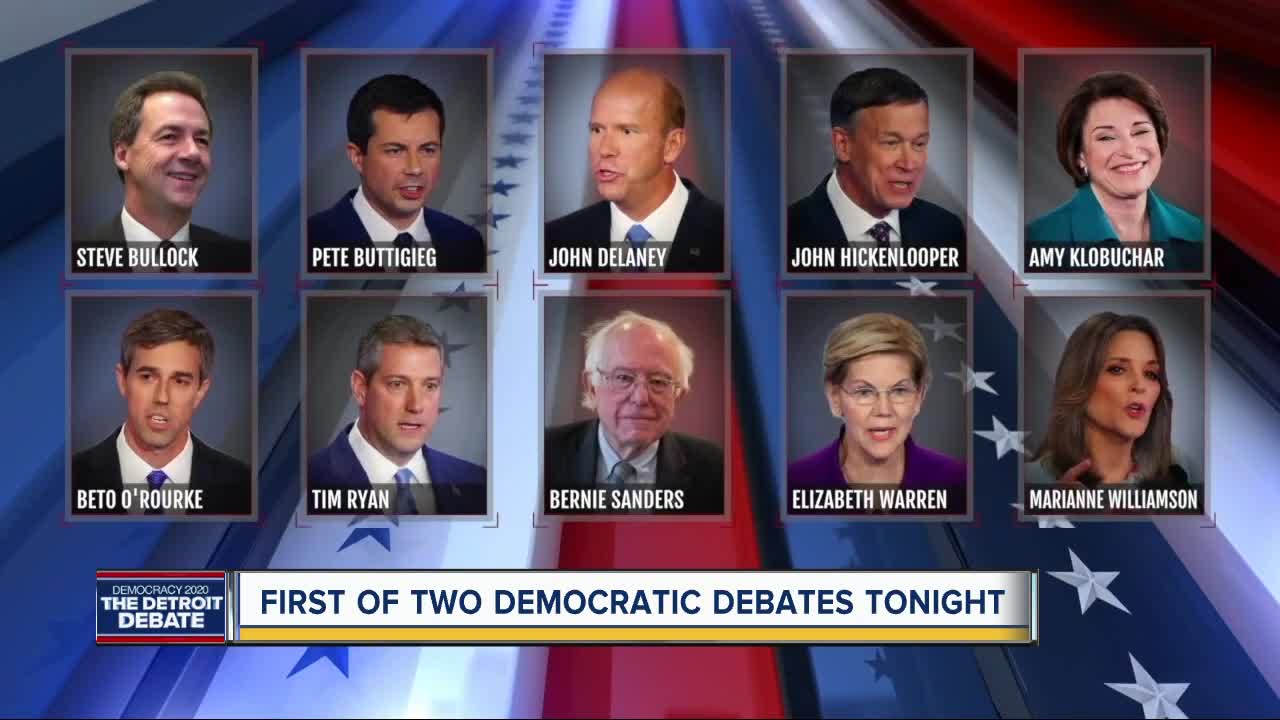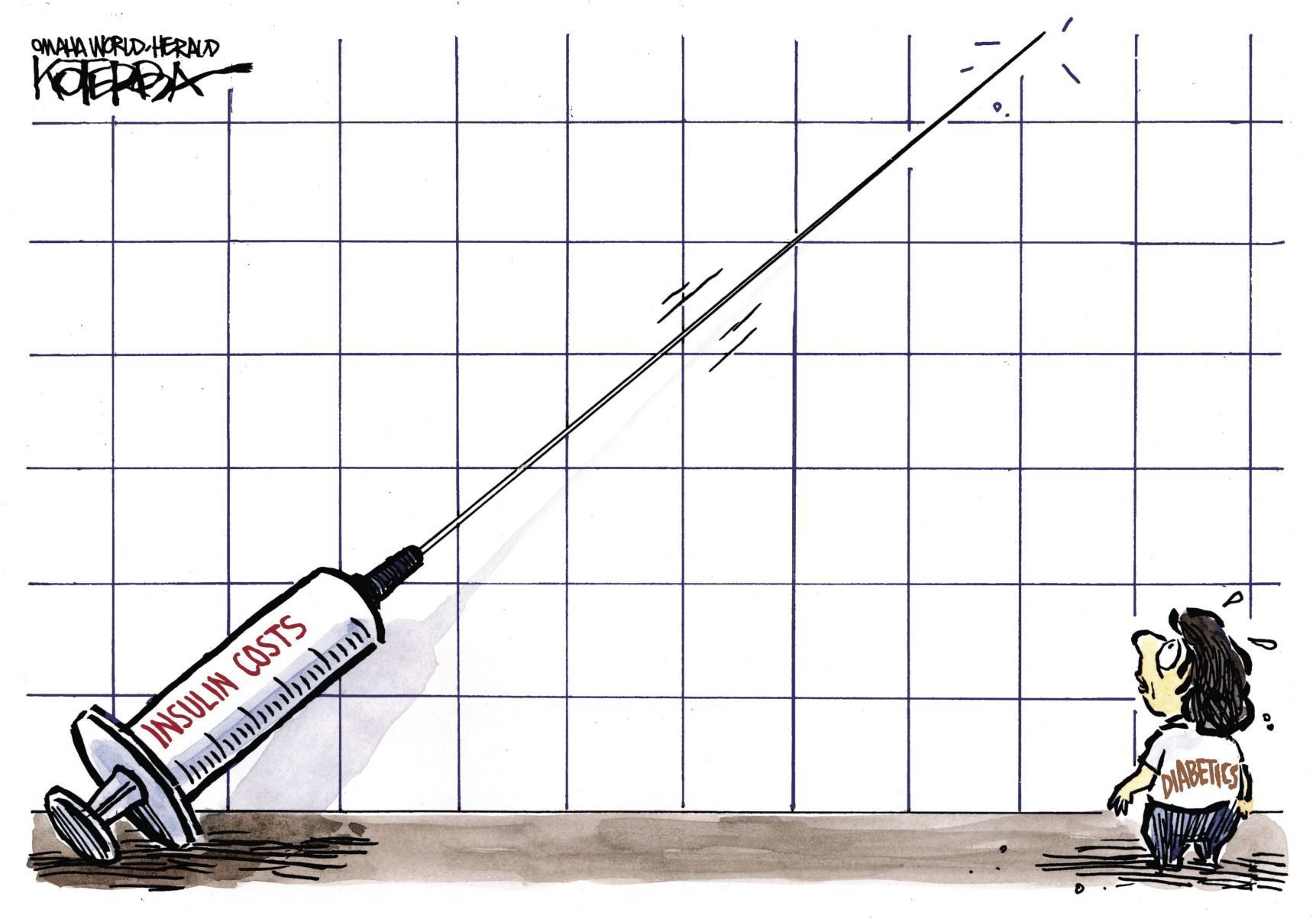RT @nytimes: Joe Biden and Kamala Harris will share the stage again on Wednesday night. Here are the political dynamics to watch on Night 2 of the second round of Democratic primary debates. https://t.co/dKGlQhRuUd #blacktwitter— PortCityPisces (@PortCityPisces) July 31, 2019
For those who may be rationing their free articles at the NYT, here's the Detroit Freep, setting up this evening's action.
After a contentious first night Tuesday, round 2 of the Democratic battle for the presidency -- with a second group of 10 candidates -- continues at Detroit's Fox Theater on Wednesday night.
The marquee matchup will be between two front-runners in the polls: former Vice President Joe Biden and U.S. Sen. Kamala Harris of California, who clashed during the first round of debates last month in Miami, creating the most talked-about moments so far of the 2020 election cycle.
But the rest of the field for the second night has some heavy hitters as well; (several) looking for breakout moments during the two-hour forum on CNN. Others in the Wednesday night lineup are: U.S. Sens. Michael Bennet of Colorado, Cory Booker of New Jersey and Kirsten Gillibrand of New York; former Secretary of the U.S. Department of Housing and Urban Development Julian Castro of Texas, New York Mayor Bill de Blasio, U.S. Rep. Tulsi Gabbard of Hawaii, Washington Gov. Jay Inslee and New York businessman Andrew Yang.
Kamala versus Sleepy Joe is a rematch, as we know, but Booker is coming loaded for bear, too.
“Joe Biden had more than 40 years to get this right. The proud architect of a failed system is not the right person to fix it,” Booker said in a statement released earlier this month.
The failed system Booker is referring to isn't healthcare or school busing, but the former veep's long record of bad choices and worse comments about race and criminal justice, going all the way back to 1994 and the crime bill he sheperded through the Congress when he was a senator from Delaware.
— More Powerful Than Putin (@PDiddie) July 31, 2019
It's truly remarkable that African American voters are still standing by Old Joe. Flanked tonight by Harris and Booker, if he can adequately defend himself or somehow turn the tables on his younger rivals ... well, it could be over for them.
“I got a past I’m proud of. They got a past that’s not quite so good,” said Biden, who refers frequently to his eight years as No. 2 to the first black U.S. president, Barack Obama.
But if he can't, it could be over for him.
Several people @Axios spoke with drooled over the optics of Biden standing between Harris and Booker on the #DemDebate stage. They're "two African American rising stars who represent the future of the party, and Biden very much represents the past" https://t.co/rrn8rM9t9u— More Powerful Than Putin (@PDiddie) July 30, 2019
To say that I'm pulling for the underdogs is an understatement.
.@SenGillibrand preparing attack on @JoeBiden https://t.co/6ewU0sdiaK via @politicalwire #DemDebate #CNNDebate— More Powerful Than Putin (@PDiddie) July 30, 2019
Gillibrand's pitchfork is sharpened for Biden on women's issues.
“I’ve got to tell you, I’m really sick of it. I’m so freaking sick of it. I can’t tell you how angry I am that Democrats, Democrats turn a blind eye to sexual assault, sexual harassment and any reforms that value women in the workplace,” Gillibrand said. “And they play lip service to women and to women voters, but I promise you, every time the door of a negotiating room closes, women’s reproductive freedom, women’s rights, women’s equality is the first thing that’s thrown out the window to create a compromise, and that is compromise by Democrats and Republicans, both sides of the aisle in Congress.”
There's more and you should read it.
“My question to all of you as women, who do you want in the White House?” Gillibrand asked. “Do you want a woman who values you? Do you want a woman who will go to the mat for you every time? Not compromise on your women’s reproductive freedom? Not compromise on your worker’s rights? Not compromise on your ability to go to the workplace and not be sexually harassed?”
It's a strong argument, one that works not just on Gropey Joe but also the Rapist-in-Chief.
Anyway ... which Biden shows up? The one who whipped Paul Ryan's ass in 2012, or the one who nearly fell asleep at the podium last month?
Even though the former vice president had a lackluster performance during the first Democratic debate in Miami, he still has a decent lead in all the polls taken since. When he cut himself off while responding to a contentious segment on race with the words "my time is up," many wondered whether he was talking about that segment or his time in the presidential race. (Supporters) expect Biden to walk a fine line of being aggressive enough to assuage worries that he's not up to the challenges of a campaign, but not too defiant to turn off some supporters. "I was probably overly polite" in the Miami debate, he said last week.
I can't wait to see if he can walk that line.
Joe Biden is 'uncoachable' in debates and 'can't stay on the script,' says Democratic strategist https://t.co/BMT161CxL2 #DemDebate #DemDebateMI— More Powerful Than Putin (@PDiddie) July 30, 2019
After several weeks of racist tweets from President Donald Trump regarding four Democratic members of Congress -- Alexandria Ocasio-Cortez of New York, Ayanna Pressley of Massachusetts, Rashida Tlaib of Detroit and Ilhan Omar of Minnesota -- as well as tirades against U.S. Rep. Elijah Cummings of Maryland, the issue of race is sure to come up. And tonight's lineup includes three candidates of color: Harris, Booker, and Castro.
Biden's numerous gaffes about race over the years are bound to be referenced by one of his challengers. But look for others besides those mentioned above to take a few swings at the hair-plugged pinata.
The fight will be on for the second- and third-tier candidates to break through and get some much-needed air time. Gillibrand, de Blasio, Gabbard and Inslee frequently tried to interrupt their way into the debate discussion in Miami, with varying degrees of success.
[...]
During the first debate, Castro landed some significant punches, especially on O'Rourke regarding immigration, and ended up getting a bump in the polls. But he appeared on the first of the two nights, when there weren't as many front-runners on stage. This time around, he'll probably have a larger audience and will be on the same stage with two of the leading candidates in the field.
It's make-or-break for Round 3 in H-Town after Labor Day, and more of these going tonight feel the stress of making that cut than yesterday's Mod Squad (thanks for that, Stace).
At stake is their future on the stage when it becomes harder for candidates to qualify. After the Detroit debate, candidates will have to rate above 2% in national polling and have contributions from at least 130,000 individual donors. Under that criteria, eight candidates -- Biden, Sanders, Warren, Harris, Booker, Yang, South Bend Mayor Pete Buttigieg and former U.S. Rep. Beto O'Rourke -- have qualified for the next debate, Sept. 12-13 in Houston.
So pop your corn, get the pizza ordered early, settle in and watch the fireworks.




:format(webp):no_upscale()/cdn.vox-cdn.com/uploads/chorus_asset/file/18365118/GettyImages_642101560.jpg)
